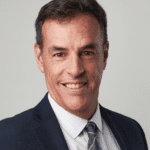
For PR professionals, social media can be your best friend. It also can be a time bomb, activated by one mere negative post that suddenly spreads and takes on a life of its own. Perceptions and reputations can be destroyed in an instant.
In this volatile, unpredictable environment, the onus is on brand communications experts to be prepared for the worst – by closely listening to the conversations and having the assets ready at a moment’s notice to fend off any potential bad publicity.
One professional well-versed on the topic is Andrew Sherry, vice president of communications for the Miami-based Knight Foundation, a nonprofit that funds journalism, community engagement and the arts, with a special focus on 26 cities where John S. and James L. Knight once published newspapers. Sherry will share his insights on a panel at the upcoming Crisis Management Summit on Feb. 27-28 in Miami Beach, hosted by PR News.

In a recent Q&A, Sherry gave a preview of his session, “How to Prevent Brand Crises on Social Media And Measure Outcomes.”
PR News: How do you get out in front of a crisis when you see warning signs, even though an all-out brand attack has not yet occurred?
Sherry: The best way is to anticipate criticism before it happens. For example, we knew an announcement that was coming about a partnership with Facebook would draw some fire from our core journalism constituency, but most would be placated if they understood it was in the context of supporting local news. So, we reached out to some in advance, and built the context into all our messaging.
Crises you don’t anticipate, of course, are harder. But an early negative tweet is worth paying attention to. Is it from a chronic malcontent with a constituency of one, or is it flagging a real criticism we hadn’t anticipated? If the latter, spotting it early can allow time to inoculate the organization against a real backlash, usually by doing a better job of explaining transparently why we did what we did.
PR News: What is your internal structure for monitoring social media attacks?
Sherry: When a communications officer at Knight sees a concerning remark or mention on social media, he or she will often flag it for the team, and we’ll weigh response options -- including whether or not a response is warranted. Our team primarily uses Slack over email, so we’re able to respond faster when negative content is spreading. Our program directors in eight U.S. cities are often the ones to spot controversy brewing on social in their communities. Similarly, they will pull in communication team members to consult on how to respond, or not respond.
PR News: How do you determine the right content and tone of your response?
Sherry: Respectful is always a good tone. Apologetic only if there is something to apologize for. And if there is, acknowledge it, take responsibility and be authentic. The faster you deal with it, the faster it will pass.
We also try to get negative conversations off social as quickly as possible. For example, if someone makes an inaccurate accusation, we set the record straight, and say if you have any questions to call, giving the name and number of a specific communications staffer.
PR News: What is the most common mistake you’ve seen brands make trying to diffuse a social media brand attack?
Sherry: Engaging with what they think will be a devastating tweet in order to decisively win an argument, except it isn’t. The critic keeps going and won’t give up. A long, negative thread unfurls.
PR News: How do market influencers help fend off a social media attack?
Sherry: They can be vital, which is why it’s so important to earn trust from the way you work every day. It creates a pool of good will. We had a crisis when the journalism community was furious with us for paying a plagiarist an honorarium to speak at a conference (our logic in inviting him to talk about how he was trying to redeem himself was defensible, but the pay was not). We acknowledged we had made a mistake and expressed regret. At that point, a number of influential people commended us for correcting ourselves fast and transparently, and any remaining grumblers went silent.
Influencers can also inoculate you against anticipated controversies. For example, we later learned that a very influential person had recommended this speaker to us. If we had been alert sooner, we could have had him write something about why his contribution was valuable, and shared it on social before and during the event.
